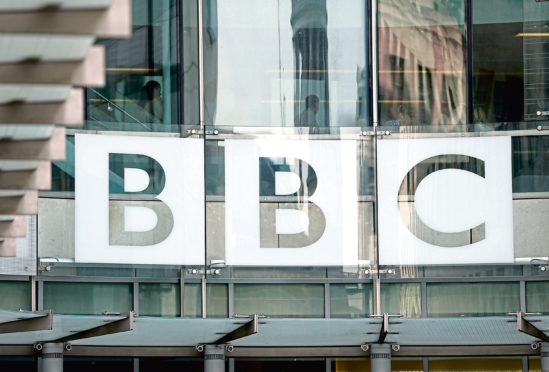We are living through a historic period. Brexit will force the UK to strike out on its own, for better or worse, making new trade agreements, deciding its own immigration policy and forging its own future.
It is a time when we are looking for reliable, truthful information more than ever.
Ironically this is one field in which the UK already leads the field, yet we are allowing ourselves to destroy it.
The BBC is one of the two best known brands in the world, the other one being Coca-Cola. When I travelled through remote parts of Asia and encountered villagers with good English, the explanation was always the same: they learned it from the BBC. It has spread our values of democracy, fairness, equality and justice far and wide. It is a source of truth in a world of misinformation and has played a vital role in some of the world’s greatest events.
Despite being the proud owners of a media organisation which is the envy of others, we constantly allow our politicians to make its existence even harder. We are told we need to make sure that the licence fee “remains relevant”, but it is precisely because of the licence fee that the BBC tries to appeal to the widest audience possible.
When people started moving online, it developed the most popular news website in the world. We are told the BBC is being left behind by on-demand channels like Netflix and Amazon Prime but we forget that the BBC led the way with the iPlayer, not to mention the fact that Netflix is billions of pounds in debt.
The latest “concern” is the BBC is failing to attract younger audiences. How easily we forget that it developed the most innovative, educational and diverse children’s programming in the world. CBBC and CBeebies ensure that every child is represented no matter what race, nationality, gender or sexuality they happen to be. Sure, those children grow into teenagers and desert their television sets until they reach 35 but they are still consuming BBC content on social media, websites and the iPlayer.
The BBC was told to be more commercially minded, so it created natural history programmes, dramas and entertainment shows which were sold around the world.
Instead of being rewarded it was told it would have to take responsibility for free licences for the over-65s, and now the latest erosion of its funding is a threat to end prosecution for licence-fee evasion.
The BBC suffers from being a bit elitist, London-centric and has an equal-pay problem which I myself suffered from. But it is precisely because of its public funding that it feels the pressure to correct this bias. One of my frustrations at the BBC was the amount of time and effort that was devoted to answering complaints. It’s not that the other channels don’t get the same number of complaints. They just ignore them.
When I was working in the newsroom we hosted a group of journalists from India. They were spending a few weeks with us to learn the BBC way of doing things. A colleague of mine was investigating the Gypsy Traveller community and the discrimination they faced. The Indian journalist was aghast that we were spending time and effort on this story. She told us that in India, the media would not cover this issue because “nobody cares about them”. They were not an audience large enough to interest the advertisers and therefore their concerns were irrelevant. Anyone working in the field of public relations will tell you that those who advertise get greater coverage in the magazines they advertise in. Don’t tell me that you believe the product reviews.
We are entering dangerous times. In my 15 years as a correspondent with the BBC I saw the number of specialists in the Scottish media dwindle. In 2002 there were dozens of health correspondents, for example. When I left in 2016 there were four.
Journalists with specialist knowledge are vital to unpick the spin, dig out the real scandals and put events in context.
During the recent general election, the BBC News website was the most popular source of election-related news. The BBC is one of the few organisations which can still invest in journalism, as well as drama, entertainment, sport and natural history and it is one of the few reliable sources of information. My teenage son comes home from school every day with another totally inaccurate piece of nonsense being circulated on social media. We are not paying for newspapers and now we don’t want to pay the licence fee. We all want our news for free and the true cost is the truth.
We are told the licence fee is “irrelevant”, but what is the alternative? A race to the bottom so all broadcasters can make maximum profit from the least expensive programming they can get away with? As the BBC approaches its centenary let us not forget its role in our history and it’s vital role in our future. It has been a beacon of our values here and abroad.
Don’t believe the spin. If we erode its funding we let the advertisers in and then we would destroy an organisation which we need now more than ever.
Eleanor Bradford is a former BBC Scotland Health Correspondent and now works in communications in the education sector










